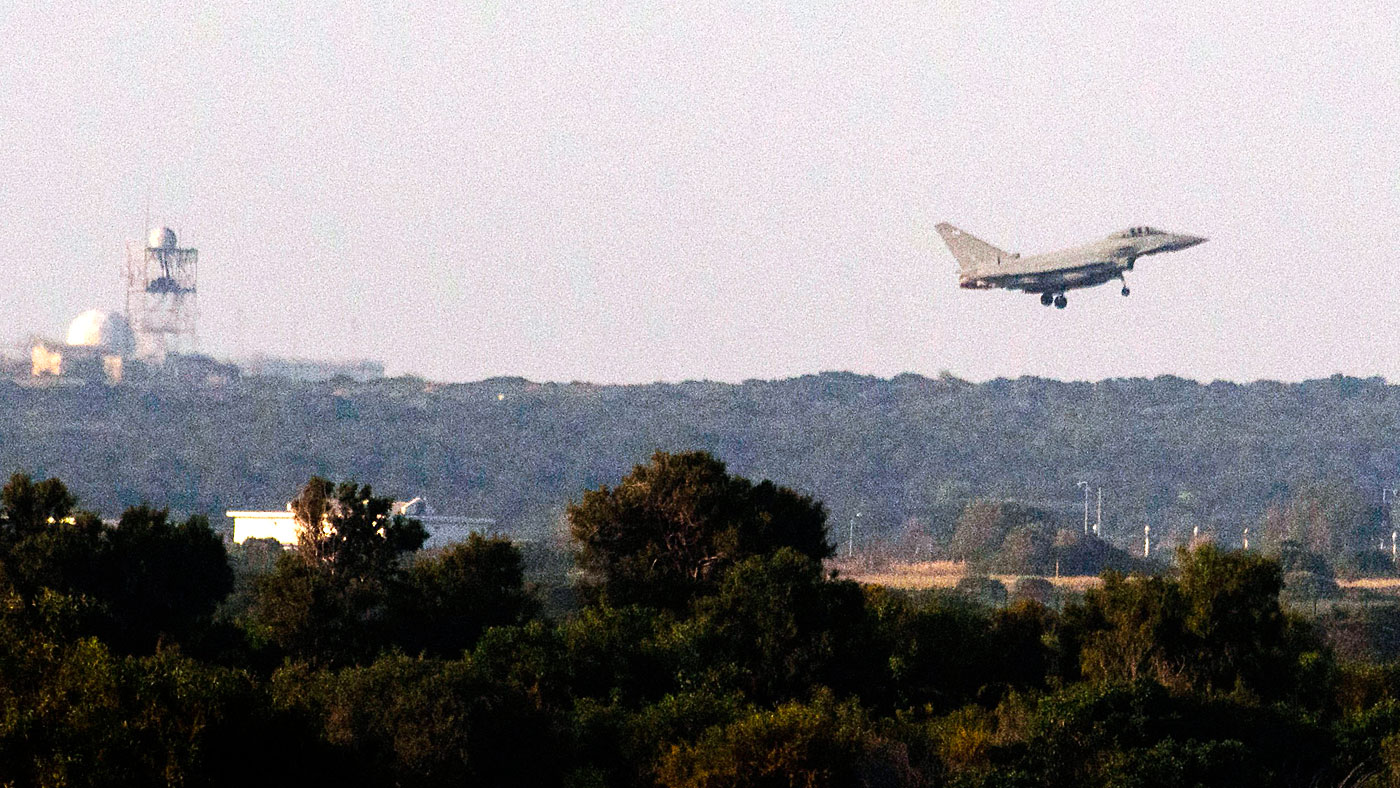Syria strike: UK, US and France punish chemical attack
Theresa May says the West ‘cannot allow the use of chemical weapons to become normalised’

A free daily email with the biggest news stories of the day – and the best features from TheWeek.com
You are now subscribed
Your newsletter sign-up was successful
Britain, France and the US attacked Syrian targets early this morning, seeking to punish the regime of Bashar al-Assad for its alleged use of chemical weapons against civilians last weekend.
The Ministry of Defence said four Tornado jets fired missiles at a military site near the city of Homs, which was believed to be storing precursor materials for chemical weapons. US Tomahawk missiles struck another target in Homs, and one near the Syrian capital, Damascus.
Theresa May said she had authorised a “limited and targeted strike” that was “not about intervening in a civil war” and “not about regime change”.
The Week
Escape your echo chamber. Get the facts behind the news, plus analysis from multiple perspectives.

Sign up for The Week's Free Newsletters
From our morning news briefing to a weekly Good News Newsletter, get the best of The Week delivered directly to your inbox.
From our morning news briefing to a weekly Good News Newsletter, get the best of The Week delivered directly to your inbox.
Referring to the nerve agent attack on Sergei Skripal in Salisbury last month, she said: “We cannot allow the use of chemical weapons to become normalised - within Syria, on the streets of the UK, or anywhere else in our world.”
However, Labour leader Jeremy Corbyn said the strikes were “legally questionable”.
Last night’s wave of strikes “is the most significant attack against President Bashar al-Assad's government by Western powers in seven years of Syria's civil war,” says the BBC.
It involved about twice the fire-power of last year’s US cruise missile attack on a Syrian airbase, prompted by a previous chemical attack.
A free daily email with the biggest news stories of the day – and the best features from TheWeek.com
“Great care was taken to avoid Russian or Iranian personnel or military hardware,” says The Times, but Moscow was not notified of the strikes before they began. Before last year’s attack, Washington gave the Russian government advance warning.
Nevertheless, says The New York Times, “the strikes risked pulling the United States deeper into the complex, multisided war in Syria and raised the possibility of confrontation with Russia and Iran.”
The Russian ambassador to the US said last night that the attack “will not be left without consequences”.
Donald Trump accused Russia of associating itself “with the mass murder of innocent men, women and children” and raised the prospect of more strikes.
“We are prepared to sustain this response until the Syrian regime stops its use of prohibited chemical agents,” he said.
But the Pentagon described the operation as a “one-time shot”.
-
 The ‘ravenous’ demand for Cornish minerals
The ‘ravenous’ demand for Cornish mineralsUnder the Radar Growing need for critical minerals to power tech has intensified ‘appetite’ for lithium, which could be a ‘huge boon’ for local economy
-
 Why are election experts taking Trump’s midterm threats seriously?
Why are election experts taking Trump’s midterm threats seriously?IN THE SPOTLIGHT As the president muses about polling place deployments and a centralized electoral system aimed at one-party control, lawmakers are taking this administration at its word
-
 ‘Restaurateurs have become millionaires’
‘Restaurateurs have become millionaires’Instant Opinion Opinion, comment and editorials of the day
-
 Epstein files topple law CEO, roil UK government
Epstein files topple law CEO, roil UK governmentSpeed Read Peter Mandelson, Britain’s former ambassador to the US, is caught up in the scandal
-
 Iran and US prepare to meet after skirmishes
Iran and US prepare to meet after skirmishesSpeed Read The incident comes amid heightened tensions in the Middle East
-
 Israel retrieves final hostage’s body from Gaza
Israel retrieves final hostage’s body from GazaSpeed Read The 24-year-old police officer was killed during the initial Hamas attack
-
 China’s Xi targets top general in growing purge
China’s Xi targets top general in growing purgeSpeed Read Zhang Youxia is being investigated over ‘grave violations’ of the law
-
 Panama and Canada are negotiating over a crucial copper mine
Panama and Canada are negotiating over a crucial copper mineIn the Spotlight Panama is set to make a final decision on the mine this summer
-
 Why Greenland’s natural resources are nearly impossible to mine
Why Greenland’s natural resources are nearly impossible to mineThe Explainer The country’s natural landscape makes the task extremely difficult
-
 Iran cuts internet as protests escalate
Iran cuts internet as protests escalateSpeed Reada Government buildings across the country have been set on fire
-
 US nabs ‘shadow’ tanker claimed by Russia
US nabs ‘shadow’ tanker claimed by RussiaSpeed Read The ship was one of two vessels seized by the US military